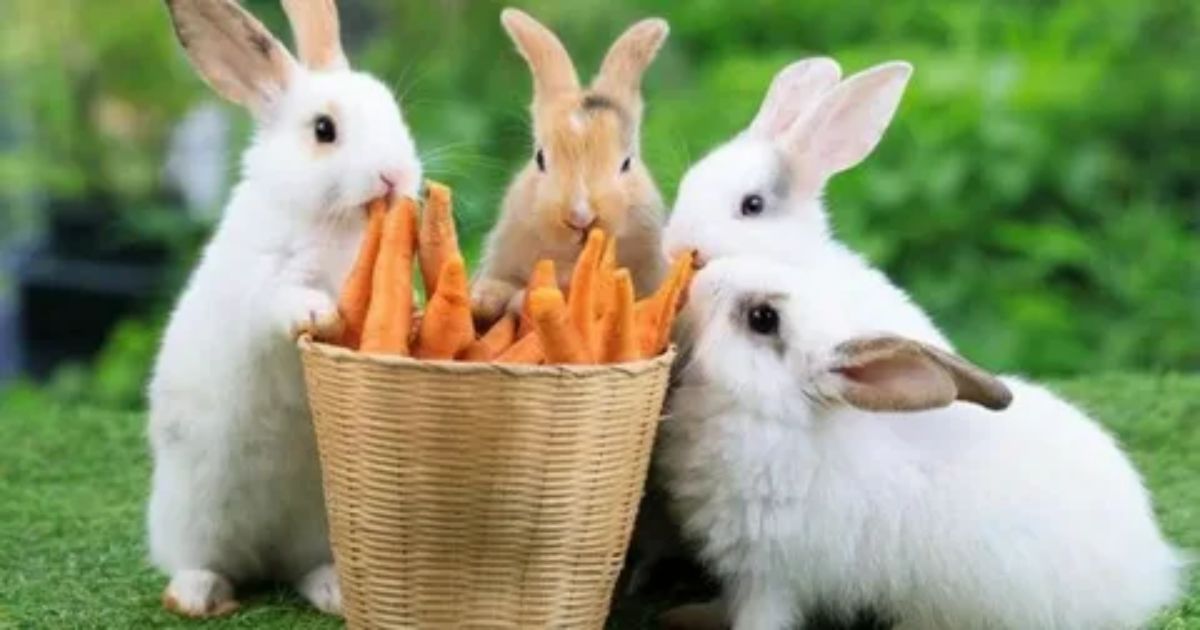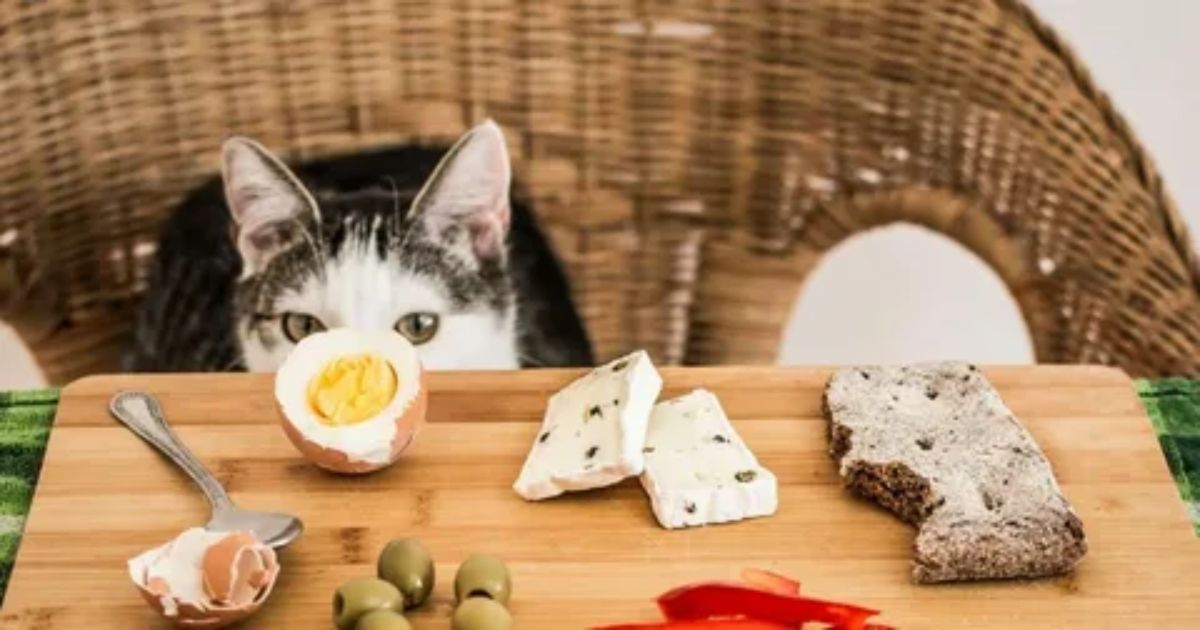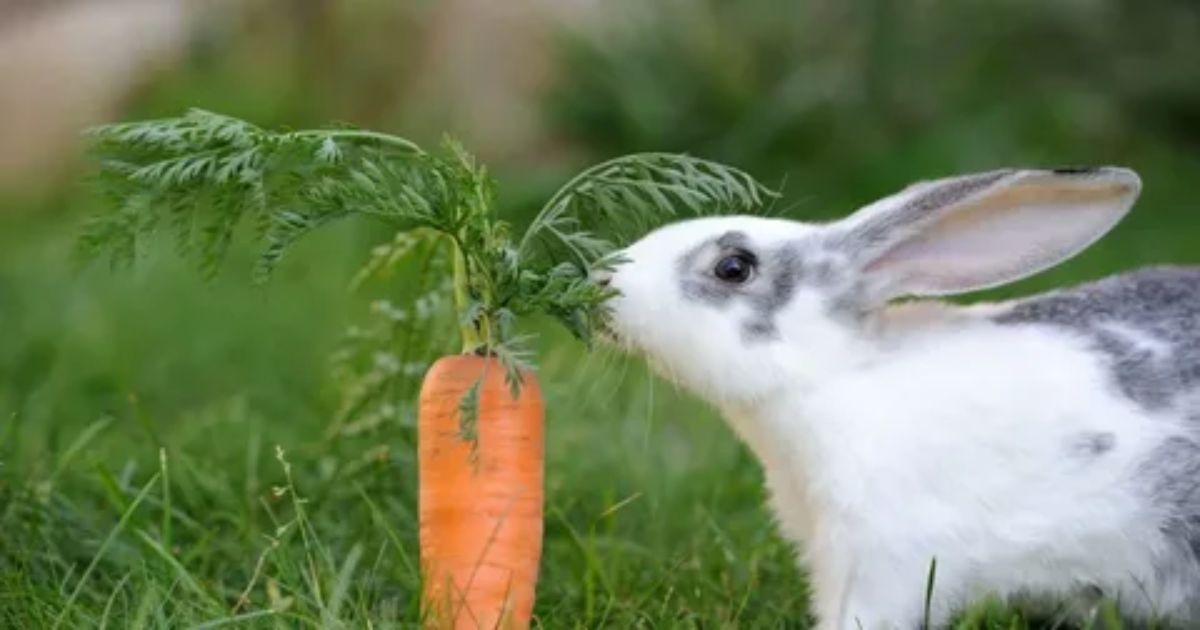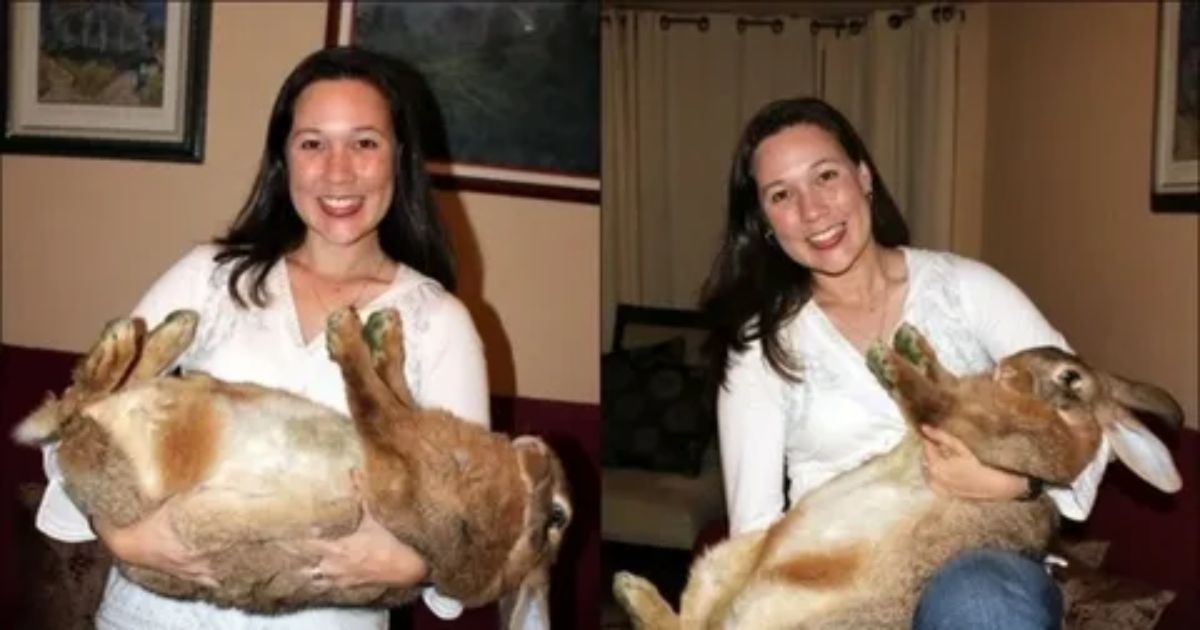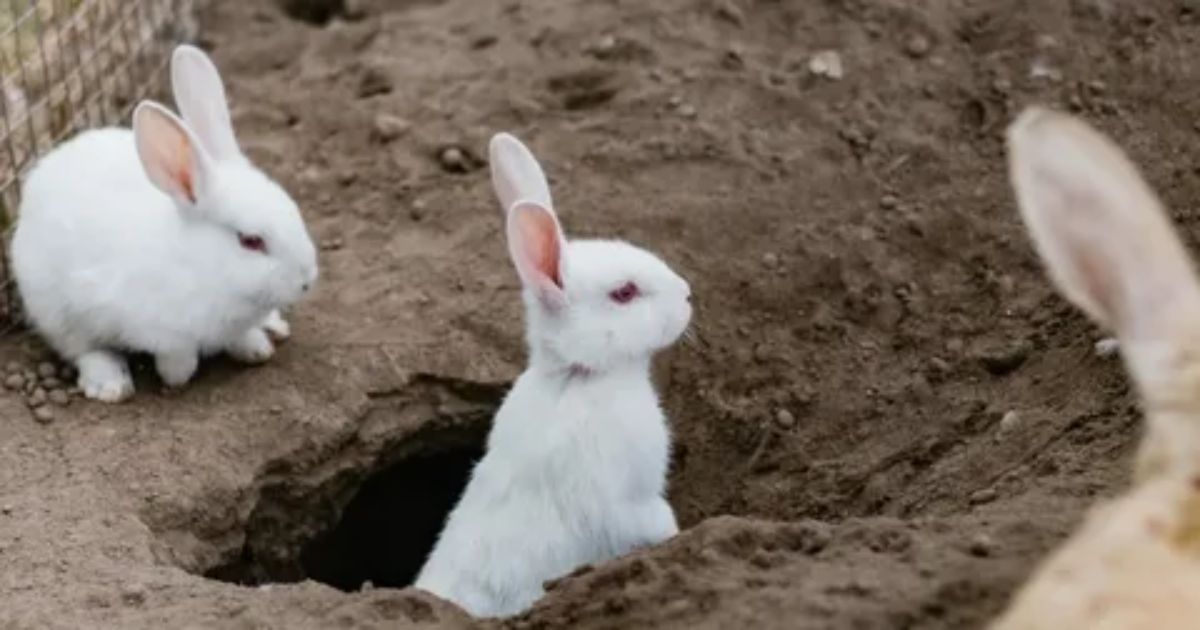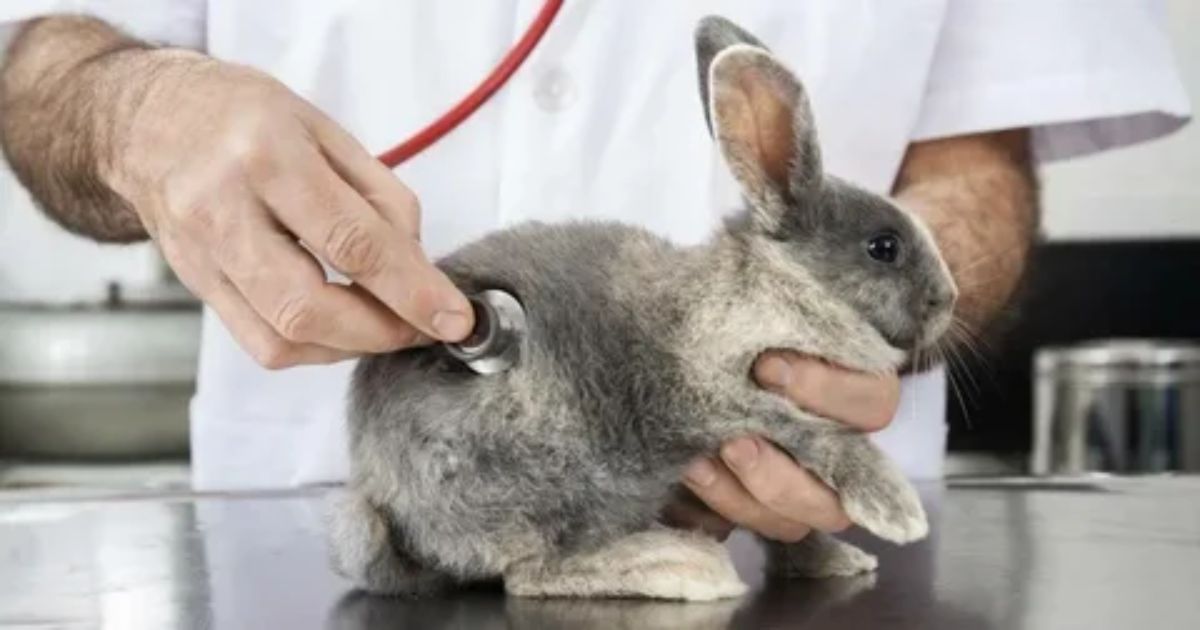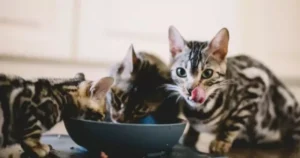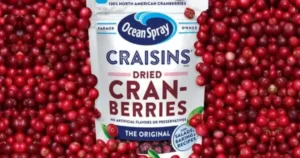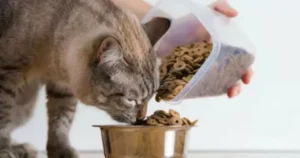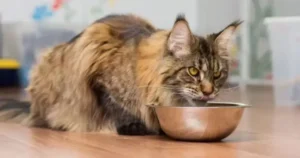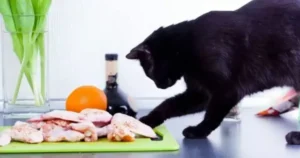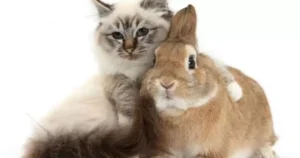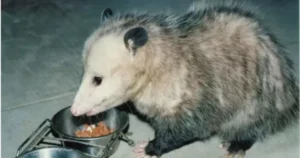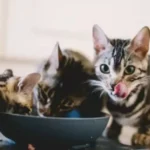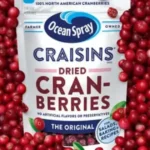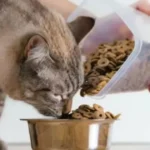Cat and rabbit proprietors alike frequently wonder if they can simplify puppy care by feeding their rabbits cat food or vice versa. but, whilst logical at the start glance, the vitamins and digestive needs of cats as opposed to rabbits fluctuate significantly. Feeding a rabbit eat cat food poses substantial health risks ranging from digestive issues and weight gain to organ damage and potentially death over time.
As prey herbivores versus predatory carnivores, rabbits and cats evolved eating contrasting diets that now shape their gastrointestinal tracts and metabolisms. This article explores why and how rabbit-specific nutritional needs make cat foods inappropriate despite the appeal of convenience. We delve into the following key considerations: while rabbits may eat cat food if given access, prolonged consumption can cause digestive issues and kidney problems over time. Therefore, rabbit owners should ensure rabbits cannot access cat food.
- Key Nutrition Differences
- Health Risks of Cat Food for Rabbits
- Debunking Cat Food Misconceptions
- Protecting All Lifestages
- Encouraging Rabbit-Savvy Veterinarians
Understanding these facets illuminates why dedicated rabbit diets must supersede good intentions for simplified pet care. Let’s examine why rabbits eat cat food and have distinct nutritional needs incompatible with interspecies feeding.
Key Nutrition Differences
Rabbits, as herbivores, have different diet requirements than carnivorous cats. From the cellular level up, their bodies operate on contrasting nutritional fuels.
Rabbit Nutrition Needs
As grazing prey animals, rabbits evolved to thrive on diets composed primarily of:
- Hay and grasses
- Leafy greens
- Vegetables
- Limited fruit treats
They require continual access to hay critical for several reasons:
- Fiber supports gut motility and healthy digestion
- Grinding action maintains constantly growing teeth
- Nutrients sustain body condition
Their digestive tract ferments high-fiber foods rich in cellulose and hemicellulose into microbiome food sources. Rabbits then produce nutrient-rich cecotrope night feces they reingest for additional vitamin, protein, and mineral absorption. This endothelial symbiosis enables rabbits to survive on low-calorie diets. Hay thereby provides vital hindgut fuel and gastrointestinal motility. Leafy greens and vegetables supply added nutrition for balance.
Rabbit Digestive Tract Anatomy and Operation
To understand why hay digestibility proves so pivotal, let’s overview key rabbit digestive anatomy and function:
- Small intestine – Initial absorption of sugars, starch, proteins
- Cecum – Fermentation chamber producing cecotropes
- Large intestine – Fiber digestion by microbiome
- Hindgut – Absorbs nutrients from cecotropes
This elongated gastrointestinal tract allows thorough fiber breakdown and nutrient extraction. The lack of a rabbit gallbladder also decreases fat digestion abilities. So high-fiber, low-fat diets facilitate smooth digestive transit. Insufficient hay ups gastrointestinal stasis risk considerably.
Cat Nutrition Needs
In evaluation, as obligate carnivores, cats thrive on animal-based total proteins with confined carbohydrates or vegetable depend. unlike rabbits and other omnivores, cats lack the metabolic pathways to synthesize crucial amino acids like taurine. Meat-based diets supply these crucial compounds. Hence, cats evolved requiring diets composed heavily of:
- Meat
- Organs
- Bones
While modern cat foods incorporate plant-based proteins and fibers, excessive fiber irritates feline digestive tracts. Cats lack the microbiome diversity of herbivores to ferment vegetables. They also uniquely require ample animal-based proteins and fats for energy and nutrient supply. Poor quality cat foods risk malnutrition, obesity, and other systemic issues.
In summary, rabbits and cats have vastly differing gastrointestinal anatomy and nutritional metabolisms. Foods designed for one species fail meeting to the other’s needs. Feeding either inappropriate diets long-term inevitably causes adverse health impacts.
Health Risks of Feeding Cat Food to Rabbits
Beyond incompatible nutrition profiles, offering cat foods to rabbits carries tangible health threats: while rabbits may nibble on cat food if accessible, prolonged consumption is harmful. As herbivores, rabbits cannot properly digest the high protein and fat levels in cat food, which can cause digestive issues and kidney problems over time. Therefore, rabbit owners should ensure rabbits eat cat food
Too Much Protein and Fat
Excess fats and proteins common in cat foods stress rabbit digestion and liver over time. Gradual damage accumulates into obesity, gastrointestinal disease, liver function decline, and potentially death. Kittens and cats need up to 5X more calories and proteins than adult rabbits. Excess in rabbits turns into weight issues, digestive distress, and eventual organ failure.
Gastrointestinal Stasis
Cat food carbohydrates and fats also dangerously reduce rabbit gut motility. This GI stasis allows food to linger and ferment. Gas, diarrhea, appetite loss, and serious stasis can occur within days. Small or toy breeds experience higher risk. Failure to maintain food and hair movement due to insufficient hay proves extremely perilous.
Mineral Imbalances
Species-inappropriate nutritional ratios in cat foods prevent adequate calcium, phosphorus, magnesium, and electrolyte balance in rabbits. Deficiency and toxicity signs compound other digestion issues. Raising orphaned wild rabbits underscores this. Despite availability, kitten milk replacers lack proper mineral levels, frequently leading to skeletal disorders or weakness.
In total, while cat foods seem an easy nutritional option, they lack the appropriate proteins, fats, minerals, and hay matter needed to maintain rabbit digestive health across their decade+ lifespan. Short-term convenience trades later for steep medical bills, misery, and potentially premature death. Simply put, cat food accumulates tangible harm in rabbits over time.
Debunking Cat Food Misconceptions
Despite demonstrated risks, myths persist that rabbits tolerate or benefit from cat foods:
My Rabbit Loves Cat Food
Rabbits adore sweets and fats. Cat food offers irresistible taste profiles high in carbohydrates. However, these fail to meet genuine nutritional needs long-term. Allowing rabbits unhealthy food because they show interest promotes suffering from weight gain, tooth decay, arthritis, liver disease, heart conditions, and GI illness. Curbing dietary excess, not enabling poor nutrition, shows true care.
It Has Added Vitamins
While ingredients like Vitamin A sound beneficial, inappropriate nutrition ratios still impede absorption and retention. Excess proteins and fats outweigh additions. For example, extra Vitamin A proves irrelevant if liver damage from high protein prevents its metabolism. Balanced delivery with proper hay digestion enables actual vitamin availability to rabbits, not merely isolated additions.
My Elderly Rabbit Lost Weight
Cat food appeals to underweight elderly rabbits needing caloric boosts. However, high carbohydrate and fat content cannot replace proper hay nutrition. Boosting hay intake protects the GI tract far better. High-fiber herbivore feeds or grass-based pellets also aid gentle weight gain without endangering digestive health. Custom hay-based mixes best meet senior rabbits’ lowered metabolic and dental capacities.
The Breeder Recommended It
Unless rabbit-experienced, many veterinarians and breeders misunderstand rabbit nutrition too. Well-meaning suggestions often overlook long-term implications across average 10-year lifespans. Just twenty years ago, starchy commercial muesli mixes were recommended until dental disease and GI illness patterns proved devastating consequences over time. This painful lesson now informs current strictly hay-based diet standards for quality rabbit care.
It Will Save Me Money
The promise of saving money on pet food misleads as well. Cheap cat foods full of carbohydrate fillers bring steep medical costs later for predictable digestion dysfunction, obesity, and dental alignments requiring correction. Preventing suffering from these chronic issues in pets unable to communicate saves far more money than diet convenience upfront. Any perceived savings grow incredibly short-lived.
In summary, justifications for feeding cat food to rabbits pale against long-established evidence of tangible harm. Cases of individual rabbits enjoying cat food only indicate short-term observation lacking awareness of long-term effects. Across wider metanalyses, inappropriate diets acutely damage rabbit well-being.
Protecting Rabbits Across all life stages
Beyond adult rabbits, misleading assumptions complicate nutrition for juvenile and senior rabbits as well:
Kit Diet Risks
Well-meaning owners often offer growing kits with protein kitten formulas. However, incorrectly balanced proteins and minerals for other species impair skeletal formation and cause bladder stone risks, and obesity in young rabbits. Kits require customized milk replacers, juvenile pellet feeds, unlimited hay access, and gradual vegetable additions to transition toward adult diets.
Senior Diet deficits
Conversely, aging rabbits struggle to metabolize proteins, fats, and minerals. Lower Crude Fiber Digestability in aged guts demands increased hay intake for motility. Gradual dental wear also dictates easy-to-chew hay-based pellets with fewer seed mixes. Custom senior rabbit formulations cater to mineral and prebiotic ratios toward digestive and dental changes. Generic kitten foods overlook these specific needs.
In essence, specialized kitten and senior cat foods still fail to meet species-specific growth needs in young rabbits or decline accommodations in aging rabbits. No cat food properly aligns with the marked changes in digestive capacities and dental structures distinguishing rabbit life stages. Custom feeds prevail.
Encouraging Rabbit-Savvy Veterinarians
Given persistent misconceptions, rabbit caregivers should advocate better veterinary education on rabbit nutrition requirements distinct from more commonly kept pets. Cats Try To Bury Their Food Rabbits rank third (and rising) in American pet ownership. However, veterinary focus lags behind companion prevalence, endangering rabbits to old advice.
FAQS:
1. What will happen if my bunny eats cat food?
Eating cat food can cause digestive issues and long-term health problems in rabbits.
2. Can bunnies eat dog or cat food?
No, rabbits have to now not consume canine or cat meals due to the fact it is too excessive in protein, fat, and carbohydrates.
3. Is dry cat food safe for rabbits?
No, dry cat food is unsafe for rabbit consumption due to inappropriate nutrition levels for rabbits.
4. What food bunnies Cannot eat?
Rabbits cannot safely eat foods like cat food, dog food, cereals, nuts, seeds, fruits with pits, and iceberg lettuce.
Conclusion:
Rabbits and cats have vastly different nutritional requirements crucial to their health. Feeding a rabbit cat food may seem like an easy shortcut, but poses real risks. The high protein, fats, carbohydrates, and mineral ratios tax a rabbit’s digestive tract and liver over both the short and long term.
Even gradual transitions or limited cat food ratios eventually cause systemic health issues that require veterinary intervention. Some rabbit owners mistakenly believe rabbits can eat cat food, though species-appropriate hay-based diets with fresh vegetables and regulated fruits, on the other hand, set up rabbits for digestive success and well-being. Respecting these fundamental diet differences keeps rabbits happily fed and owners delighted in long bright-eyed bonds.
The conclusion summarizes the inappropriate nutrition levels in cat food for rabbits, the risks of digestive and organ issues, and the need for species-specific rabbit diets for health. It also reiterates that despite the ease of feeding cat foods, the trade-offs jeopardize rabbit lives for temporary owner convenience alone. Their fundamental diet requirements deserve more thoughtful adherence.
